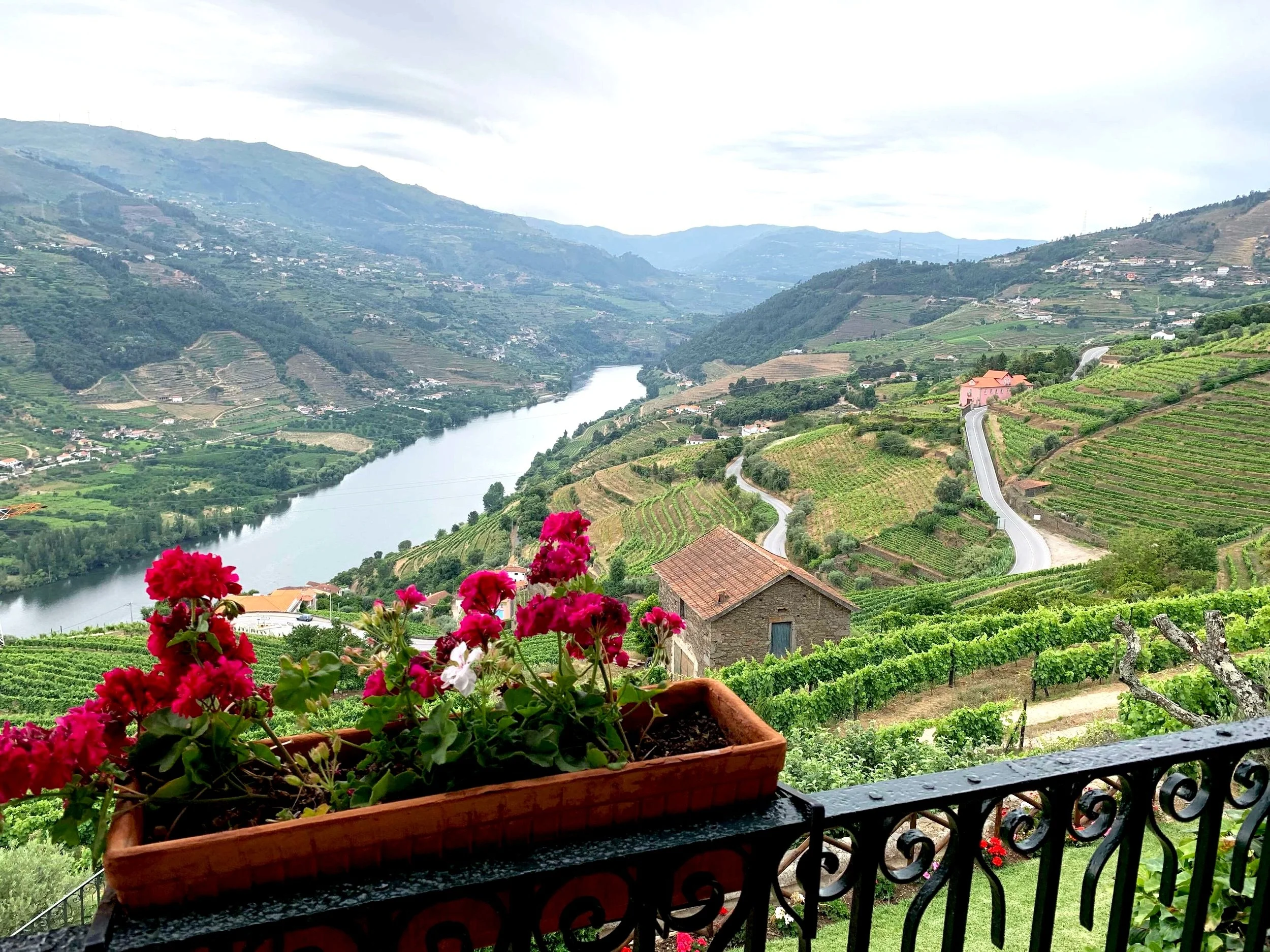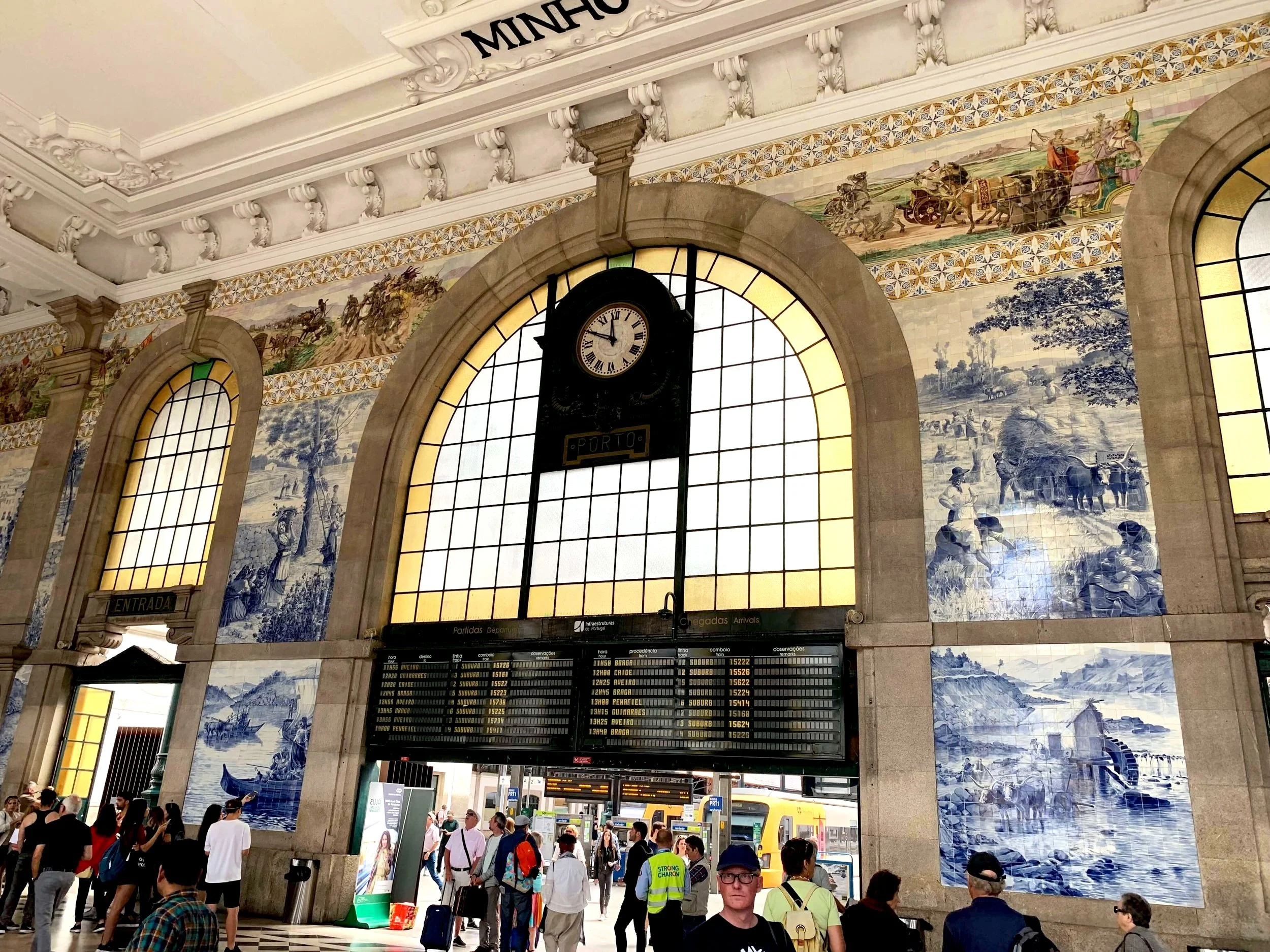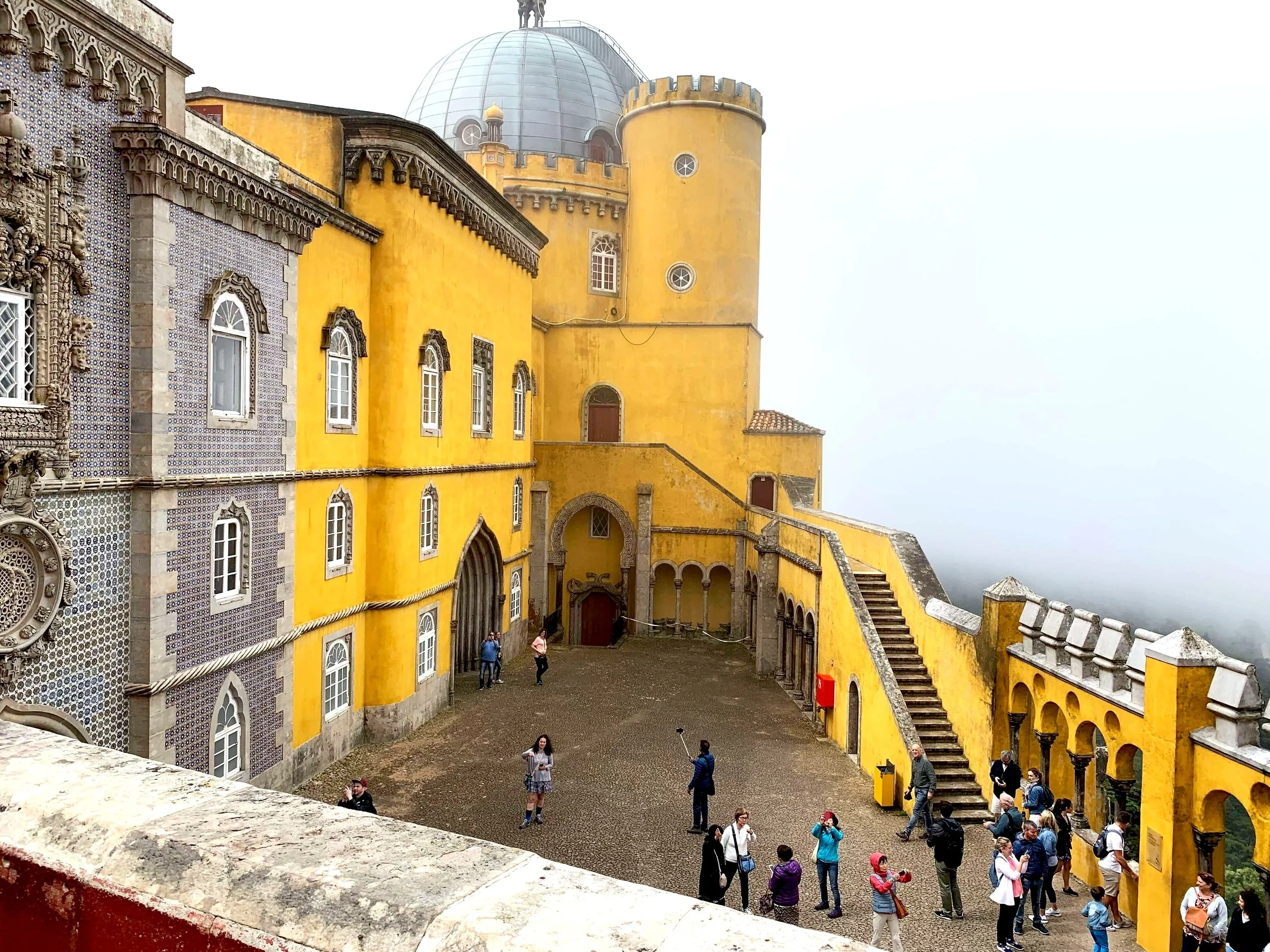What to expect when you visit Portugal
Views for days in the Duoro Valley
Portugal shares a lot of characteristics with its Mediterranean neighbors. Lots of sunshine, beautiful architecture, great food and wine, and miles of stunning coastline, just to name a few. Below we have outlined a quick guide on what to expect when you visit Portugal. This should help answer some of your general questions, like when to visit and what the transportation infrastructure is like. Hope this post nudges you to start planning your next vacation to Portugal!
Language
The official language is Portuguese, though English is spoken throughout touristy areas. As in any country, learning a few basic phrases in the local language is always helpful. I knew nothing beyond a few basic phrases and had no issues getting around.
Finances
Portugal uses the Euro (EUR). Make sure to have a little cash on hand, though credit cards are widely accepted. Prices do flucuate depending on the season and the location, but Portugal is arguably the most budget-friendly destination in western Europe, generally speaking.
Weather
The weather can vary depending on the region you're visiting. Be sure to check the forecast for your specific destination and pack accordingly. The southern coastal region is the most popular tourist destination and has a pleasant Mediterranean climate. Hot, dry summers and mild, wet winters. While the Mediterranean climate is still present in the northern half of the country, the climate becomes more temperate with lower temperatures and more frequent rainfall. If you’re planning to go inland up north (Duoro Valley, for example) having a jacket is recommended.
Sunset dining oceanside in Lisbon
When to Visit
Spring and fall tend to be the best combination of good weather, low crowds, and cultural activities to partake in. If you’re chasing surf and sun, the beaches in the south are renowned for their beauty. However, these southern coastal areas get busy during the summer, which means increased prices and lower availability. No need to overthink, though. You can have an amazing time visiting Portugal any time of year.
Transportation
Portugal has a well-developed transportation network. I had no trouble getting around using trains, buses, and taxis. In my opinion, renting a car isn’t necessary unless you’re planning to spend significant time exploring rural areas.
Etiquette
Portuguese people are known for their hospitality and friendliness. Greeting people with a handshake and maintaining eye contact during conversations is customary. Tipping is not obligatory but is appreciated for good service (around 10%).
A look inside the extraordinary interior of São Bento train station in Porto
Food
Portuguese cuisine is diverse and delicious. Dishes like bacalhau (salted cod), pastéis de nata (custard tarts), and grilled sardines are some popular options. I ate a ton of seafood when I went - no regrets! Also, based on my experience, Portuguese food works well for those who don’t like spicy food. Generally, the focus was on highlighting natural flavors of simple, high-quality ingredients, rather than integrating bold spices, peppers, or herbs. Finally, Portuguese cuisine is traditionally meat and seafood-heavy, but vegan and vegetarian cuisine is becoming easier to find. Learn to say "Sou vegetariano" (I’m a vegetarian) or "Não como carne" (I don’t eat meat), do a little research beforehand, and you’ll be just fine.
Drink
Wine was practically the foundation of my trip and I’m happy to discuss the wine in more detail than you need. I’ll never forget sitting down to lunch in a modest Duoro Valley restaurant and the owner asking if we would like some wine from his vineyard (while pointing out the window). Our options were red, white, or green. Truly a hyper-local, pretentious-free experience that required zero wine knowledge to enjoy. Portuguese wine is finally starting to get its due in the U.S., having long been overshadowed by better-known Spanish, Italian, and French varieties. Additionally, for some hands-on learning about Porto’s culinary and economical history, sampling port wine is a must when visiting the city. For the non-alcoholic scene, Portugal also has a strong coffee and cafe culture, like many of its neighbors.
Even on a foggy day, the National Palace of Peña in Sintra is a feast for the eyes
Cultural Sites
For the historical site-seekers, Portugal has more than enough to keep you busy. Lisbon's historic neighborhoods. Porto’s Douro River. The Algarve's stunning beaches. Sintra’s castles. UNESCO World Heritage sites like the Jerónimos Monastery and the Tower of Belém. The list goes on and on.
Healthcare
Portugal has a good healthcare system. Pharmacies and markets selling over-the-counter drugs are easy to find. On a related note, travel insurance that covers basic medical expenses is low cost and I would recommend it to any non-EU citizen traveling to Portugal.
As always, feel free to contact us with any questions you have. If you’re intrigued by what you’ve seen, we would love to help you plan your trip to Portugal!




